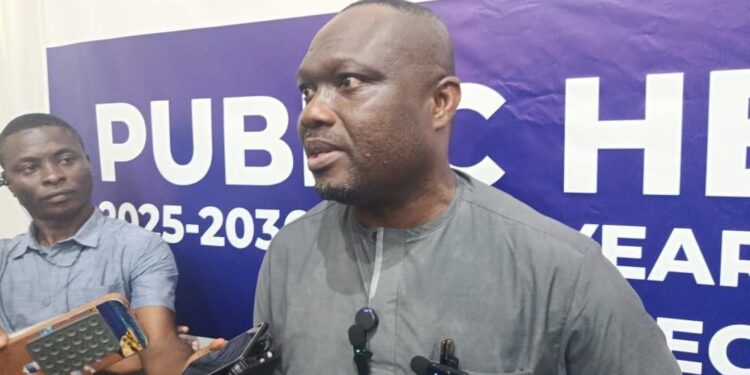The Chief Manager for Corporate Planning, Monitoring and Evaluation at Ghana Water Limited (GWL), Mr. Michael Tawiah Klutse, has called for a review of water tariffs to help the company sustain operations in the face of increasing production costs, worsening water pollution, and heavy loan repayments.
He made the appeal in Cape Coast during a Public Utilities Regulatory Commission (PURC)-organized public hearing on the 2025–2029 Multi-Year Tariff Review Period, which brought together traditional leaders, local officials, and consumers from across the Central Region.
Mr. Klutse explained that since the last tariff adjustment in 2022, the value of approved rates had eroded due to economic challenges and the depreciation of the Ghana cedi.
He noted that the company’s average tariff of 97 pesewas in 2022 had effectively dropped to about 82 pesewas, making it difficult to meet operational and maintenance costs.
Highlighting the deteriorating state of raw water sources in the Central Region, Mr. Klutse revealed that severe river pollution and siltation had forced the company to temporarily shut down some of its treatment plants.
He said rivers such as those serving the Kwekyaku, Brimsu, and Baifikrom systems had become heavily polluted, making water treatment increasingly costly and technically challenging.
Mr. Klutse described the situation as dire, warning that continued illegal mining, sand-winning, and farming along riverbanks were compounding the problem and threatening the sustainability of water supply.
The Chief Manager also disclosed that GWL currently produces about 28.4 million cubic meters of water annually across nine urban systems in the Central Region, serving nearly 92,000 customers with a workforce of 534 employees.
However, he said the company was grappling with 42 percent operational losses, largely due to leakages, old pipelines, and high treatment costs.
He revealed that the company had invested over GH¢40 million, along with funds in euros and dollars, in several projects *across the region*, including pipeline replacements, pumping system upgrades, and distribution improvements, to sustain service delivery.
Despite these investments, Mr. Klutse said rising loan obligations had become another major burden, as the government had directed the company to begin repaying its own infrastructure loans.
He added that GWL’s plan for the next tariff period includes major investments of GH¢425 million, along with $1.28 million and €34 million, for laboratory upgrades, pipeline extensions, and the construction of new customer service centres in the Central Region.
Mr. Klutse assured stakeholders that the company remains committed to providing safe, reliable, and affordable water despite the operational challenges, urging the PURC and consumers to support the proposed tariff adjustments to ensure long-term water security.
READ ALSO: Ghana Seeks Stronger EU Support to Build Full Cocoa Economy – Veep
Source: Anthony Sasu Ayisadu/ATLFMNEWS

























